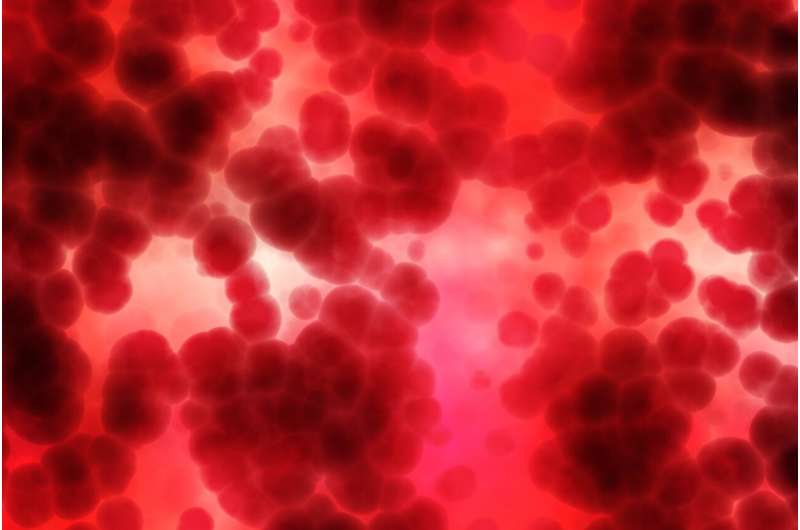This article has been reviewed according to Science X's editorial process and policies. Editors have highlighted the following attributes while ensuring the content's credibility:
fact-checked
peer-reviewed publication
proofread
Mouse study finds small extracellular vesicles from young blood extend lifespan and restore physiological functions

New research presents a significant discovery: small extracellular vesicles (sEVs) from the blood of young mice possess the capacity to dramatically extend lifespan, rejuvenate whole-body physiology and reverse age-related degenerative changes in aged mice. The work is published in Nature Aging by a collaborative research team led by Chen-Yu Zhang, Xi Chen, Yanbo Wang and Lei Fang at Nanjing University.
The efficacy of blood exchange therapy in reversing aging has long been a subject of debate, marked by a lack of definitive and compelling evidence. In this study, weekly injections of young sEVs to 20-month-old male mice resulted in a median lifespan increase to 1,031 days, a 22.7% extension from the typical 840-day lifespan of C57BL/6J male mice. The longest-living mouse survived for up to 1,266 days, which is equivalent to 120–130 human years.
Furthermore, intravenous infusion of young sEVs into aged mice alleviates senescent phenotypes and ameliorates age-associated functional declines in multiple tissues (hippocampus, muscle, heart, testis, bone, etc.). Mechanistic investigations reveal that young sEVs stimulate the expression of PGC-1α through their miRNA cargoes, ultimately improving mitochondrial functions and alleviating mitochondrial deficits in aged tissues.
Young sEVs have emerged as one of the most effective rejuvenating factors for extending lifespan. Caloric restriction therapy can extend the median lifespan to 978 days (a 16.4% increase), while oral intake of metformin and nicotinamide can raise the median lifespan to 889 days (a 5.8% increase) and 875 days (a 4.2% increase). In comparison, young sEVs have demonstrated superior longevity extension effects on aged mice.
The rejuvenating effects of young blood in reversing age-related degenerative changes are elucidated by the regenerative role of young sEVs. While prior research has mostly focused on the potential anti-aging properties of soluble protein factors in young blood, the precise mechanisms underlying these effects remain incompletely understood. This study provides compelling evidence that young sEVs can increase mitochondrial mass and maintain mitochondrial function to strengthen ATP supply, thereby compensating for mitochondrial deficiency in aged tissues.
The dynamic change of circulating miRNAs is a hallmark for aging. This study demonstrated that during the aging process, the progressive accumulation of pro-aging miRNAs and the loss of rejuvenating miRNAs in the blood disrupt tissue homeostasis and exacerbate energy deficits for physiological activity. Therefore, maintaining a steady state of rejuvenating miRNAs in circulation may provide a novel strategy for therapeutically modulating the aging process and minimizing its impact on health and well-being.
The transition of young sEVs to clinical applications for combating aging can occur rapidly. The molecular mechanisms underlying aging are highly complex. Notably, short telomeres have been identified as triggers for age-related pathologies and shorter lifespans in both mice and humans. Mice with longer telomeres exhibit a 12.75% increase in median lifespan. However, the maintenance of telomeres in adult organisms relies on various telomerase overexpression approaches, including gene therapy strategies, which are still far from practical application.
Given that young sEVs are natural vehicles circulating in the bloodstream without causing toxicity or immunogenicity, the infusion of young sEVs may serve as a versatile tool for combating aging, addressing age-related diseases and improving lifelong health in individuals who have already aged.
More information: Xiaorui Chen et al, Small extracellular vesicles from young plasma reverse age-related functional declines by improving mitochondrial energy metabolism, Nature Aging (2024). DOI: 10.1038/s43587-024-00612-4





















